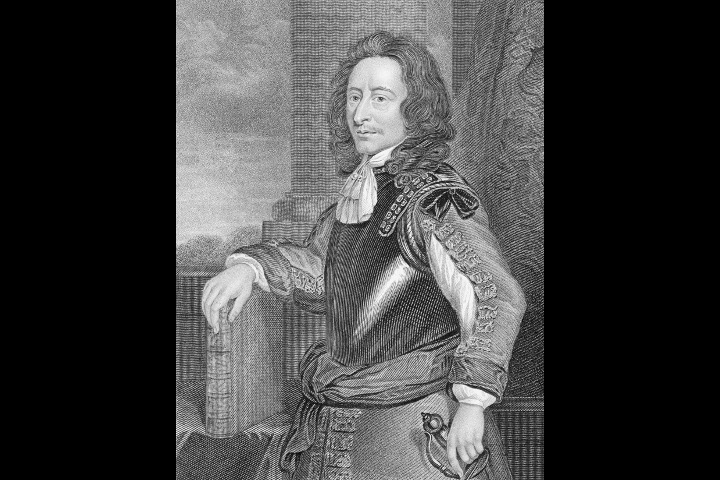
It was the reprinting in nearly every newspaper in nearly every city in America of Cato’s Letters that provided our Founding Fathers with the intellectual fuel that fed the fires of armed resistance to tyranny.
John Trenchard and Thomas Gordon, the authors of Cato’s Letters, taught our ancestors as young men that kings are not above the law, and that when kings, legislators, or any other political officeholder (“magistrate” in the language of the time) forgets that he is the servant of the people and not their master, then the people are justified in reminding him of his role, peacefully if possible, by force if necessary.
On July 15, 1721, Letter No. 37 was published in London. In it, Thomas Gordon gave his readers several tests which when applied to magistrates would distinguish the “good” ones from the “evil” ones. The source of the standard by which the character of any magistrate could be measured was Algernon Sidney’s Discourses Concerning Government.
Gordon credits quoting Sidney to the latter’s being “an excellent writer” and to his Discourses Concerning Government being “eternally true.” Although it’s nearly unknown today, our Founding Fathers were of like mind when it came to Sidney and his book. In fact, Thomas Jefferson described Discourses Concerning Government as “the best elementary book of the principles of government, as founded in natural right which has ever been published in any language.”
But this isn’t an article in praise of Sidney or Trenchard or Gordon. The influence of those men on our Founding Fathers is proven beyond all question, and the fact that few Americans today know their names or have read their works is more tragic than telling.
The goal of this article is to highlight the acts and attitudes of good and evil magistrates, so that we might learn to apply these standards to candidates asking for our support, as well as to those currently occupying government positions. Having weighed these politicians on Sidney’s scale, we’ll discover how many of our current officeholders are found wanting.
I’m going to use direct quotations sparingly, as the reader is encouraged to read Cato’s Letter No. 37 (as well as Discourses Concerning Government). Instead, I’ll paraphrase their essay, modernizing the language a bit to make it easier to understand and apply to our own time. Here we go.
First, here is Sidney’s list of what makes a man a good political officeholder:
- Seeks the good of the people he represents;
- Tries to be just and virtuous in his personal and public life;
- Strives to be worthy of the faith and trust of his constituents;
- Takes it upon himself to be a role model to young people by living a life devoted to truth and virtue;
- Takes every opportunity to teach young people to love truth and virtue and to reject lies and wickedness, hoping to strengthen them before they reach the age at which temptations to lead a sinful and shameful life are strongest;
- Does all of this, even if it might harm his career or negatively affect his popularity;
- Always does what’s best for the people, regardless of whether it helps him or not; and,
- Leads people to virtue.
So, those are the traits of a good political officeholder. Perhaps a worthwhile activity would be to ask yourself how your state and federal officials stack up when measured against Sidney’s standards.
Now for the traits of an “evil” politician:
- Believes that he is more important than the people he represents;
- Does whatever it takes to stay in office, regardless of how it affects the people;
- Sees government as a way to enrich himself;
- Always decides how to vote on a measure by how it will affect his chances to get reelected, his public persona, or his personal wealth;
- Never tries to find out how the people feel about the issues, as he believes himself superior to those who vote for him;
- Tries to keep the people divided against each other and to stir up hatred among the people;
- Knows that by keeping the people fighting each other they won’t ever realize that he is their common enemy;
- Uses his influence to convince the people that the other party is filled with people who want to destroy them and how they are justified in avenging the wrongs done to them by the other party;
- Calls it “sedition” or “rebellion” any time the people try to fight back and preserve their lives, liberty, and property;
- Goes to any lengths, including lying, to hide his lack of integrity and criminal acts;
- Teaches the youth that there is nothing wrong with lewdness or sexual immorality; and,
- Uses all means at his disposal to keep the people ignorant, lazy, or afraid to stand up for their rights
Next, Sidney (by way of Thomas Gordon) describes the kind of people who support good men in office and those who try to keep the corrupt in power.
Supporters of good government officials:
- Encourage virtue and justice;
- Help educate their fellow citizens about their rights;
- Help educate their fellow citizens about the limits of a government official’s power;
- Encourage their fellow citizens to hold their representatives accountable for their use of the power granted to them by the people; and,
- Work to increase the strength, courage, greatness, and happiness of their country.
As for those who work to get and keep corrupt people in office, they:
- Encourage acceptance of and participation in immorality;
- Tell people that whatever they want to do, they should be able to do it, regardless of law or morality;
- Convince the people that promises are made to be broken;
- Convince the people that all politicians break their campaign promises, so it’s really not important anymore;
- Constantly ignore crime and to encourage lawlessness; and,
- Do whatever it takes to keep the people fighting each other, so that they never combine their strength to defeat corruption.
Finally, Sidney, Trenchard, and Gordon warned our Founding Fathers — and are still warning us — what will happen if the people aren’t taught their rights, aren’t taught the source of those rights, and aren’t taught when and how they should rid themselves of lying and corrupt politicians:
When a party comes to be erected upon such a foundation, debauchery, lewdness, and dishonesty are the true badges of it; such as wear them are cherished; but the principal marks of favour are reserved for them who are the most industrious in mischief, either by seducing the people with the allurements of sensual pleasures, or corrupting their understandings with false and slavish doctrines.
Our noble Founding Fathers learned to love liberty and how to spot a tyrant from Algernon Sidney, John Trenchard, and Thomas Gordon — and now it is up to us to do likewise.
The John Birch Society was founded on principles such as those listed above to support and encourage good government officials. To learn more about the JBS, click the banner below.

Shop For Night Vision | See more…
Shop For Survival Gear | See more…
-
Sale!

Tactical Camo Nylon Body Armor Hunting Vest With Pouch
Original price was: $49.99.$39.99Current price is: $39.99. Select options This product has multiple variants. The options may be chosen on the product page -
Sale!

Quick Slow Release Paramedic Survival Emergency Tourniquet Buckle
Original price was: $14.99.$7.99Current price is: $7.99. Add to cart



















































